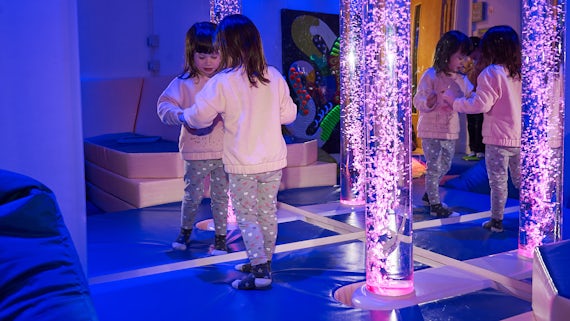Research
Our internationally renowned research aims to create positive change for autistic people by influencing practice, policy, and public awareness.
Our approach embraces neurodiversity, and conceptualises autism as a type of neurodivergence. We seek to understand the experiences of autistic people, identifying areas where support may be beneficial. Our work also considers neurodivergent conditions and traits that can intersect with autism, as well as co-occurring mental health problems.
We endeavour to make our research inclusive, including capturing the experiences of those who are non-speaking or have intellectual disability, as well as reaching people or communities who are not well represented in autism research.
Underpinning our work is engagement from the autistic community, who can connect with us through the WARC Community.
Our research covers three themes:
- characterising the autistic experience
- understanding biological and psychological processes
- developing and enhancing support
Characterising the autistic experience
We carry out a broad spectrum of research that seeks to characterise and understand the autistic experience.
This includes
- experiences of social communication and restricted and repetitive behaviours
- the value of sensory rooms to autistic people
- the experiences of emotion, mental health and wellbeing
- how to enhance the experience of participating in research.
The research includes the development of questionnaires, such as the Repetitive Behaviours Questionnaire-3, which enable autistic people, or people who know them well, to report on autistic experiences. We also use a range of existing questionnaires, observation and interview techniques to capture the autistic experience.
Understanding biological and psychological processes
We are interested in the ways in which autistic people think and perceive the world.
Our areas of focus include understanding more about social communication differences and preferences, exploring differences in emotion processing, and capturing sensory and perceptual differences.
We achieve this through a range of techniques, including:
- computer-based tasks
- observational research
- tracking patterns of eye movement
- brain imaging
- work with humanoid robots.
Developing and enhancing support
We conduct research that identifies the support needs of autistic people, encompassing the perspectives of autistic people, family members and practitioners.
Guided by this underpinning research, we are able to develop, validate and evaluate resources that support autistic people, enabling our research to have real-world impact.
Our evidence-based resources include The Birthday Party, a film created in collaboration with the Welsh Government, practitioners and autistic people that helps frontline professionals identify the signs of autism in children.
Our Repetitive Behaviours Quesitonnaire-3 is used in clinical practice to help practitioners better understand the profile of restricted and repetitive behaviours in their clients.
We have also co-created a Sensory Room Guide with educational practitioners and autistic community members, which supports practitioners in using sensory rooms with autistic children.
The WARC Community is an online database for autistic people, and their close family members, who are interested in supporting our research and community activities.

